Status: design (equal second prize in the architectural competition for the new court building in Ljubljana).
The competition was a great challange in terms of the programme, rigid regulative of the competition brief and the complexity of the location, which is adjacent to the future city boulevard and part of the new administrative district forming along the railyards.
The programme is comprising courts offices and public programme on ground floor and major public parking underground. In total 31.000 m2 above ground and some 6.000 m2 below.
Concerning the urban design aspects and the importance of the building, the main design idea was to create an image appropriate for modern democracy: ones of presence and dignity yet open and transparent. Transparency stands for clarity, truth and honesty, consequently the building envelope was designed as a slim and elegant eight storey glass shell, with the individual court`s distributed into five distinct towers.
Different programme layers are distinguished by altering the raster of the façade: dense in the internal programme and sparse in the public areas with the programme seen on the outside.
Viewed by passers-by, the entire façade towards the boulevard appears to dematerialize into an elegantly refined crystalline landmark.
Both eastern and western corners of the building are important anchor points: one towards the cultural center the other one towards the Old Town.
From the boulevard, the building is approachable through two entrances in a very clear and direct way, freed from the pomp and inaccessibility usually associated with justice buildings.
The lack of potential space for public domain in front of the building lead to the concept of placing the »public« vertically onto the building`s boulevard façade, introducing through this three storey »vertical plaza« a strong visually connecting element between the street and the public part of the building, re-establishing a contemporary interpretation of the traditional pattern.
The concept of a layered building established the necessary division between public and internal circulation by placing the courtrooms longitudinally along the building, providing access from internal corridor on the north face and the public access on the south. The longitudinal distribution of the courtrooms creates a meandering, free-flowing interior landscape, alowing flexibility in size and disposition in the future.
The judges report evaluates the proposal as very fresh and forward looking in terms of the new typology of the courthouse and integration of the program in the realm of city public spaces.
2007
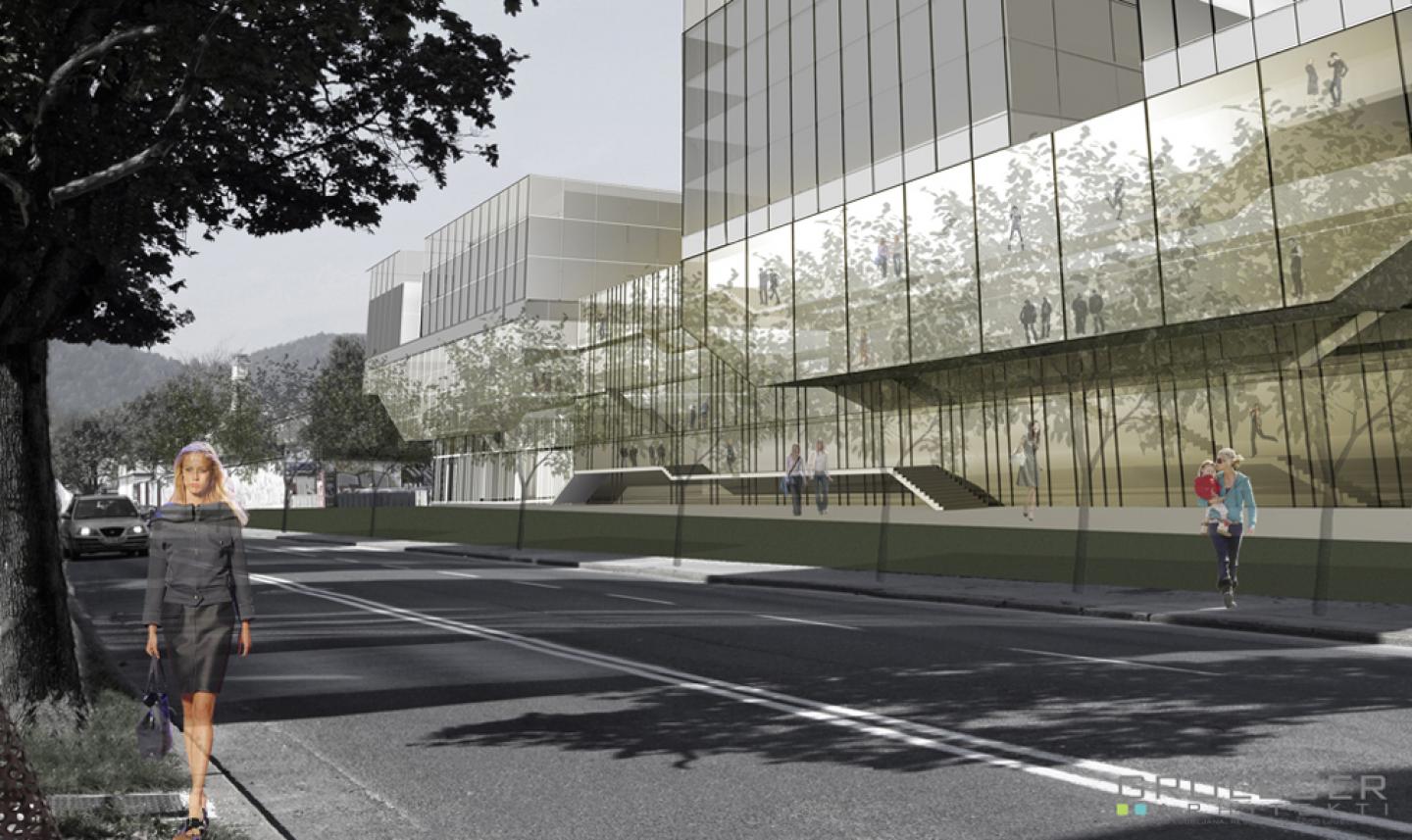
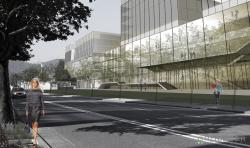
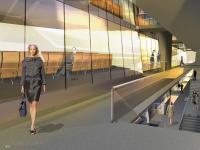
.jpg)
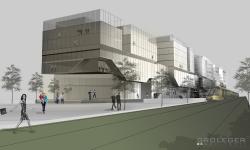
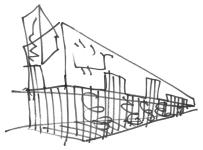
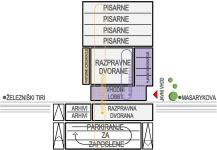
.jpg)

